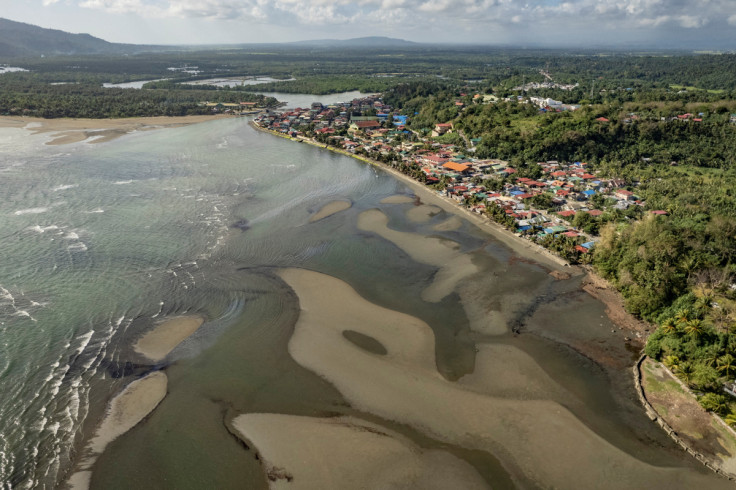Filipino Priest On Mission In Europe To Halt Fossil Fuel Financing

A Filipino priest is touring top European banks to demand they curtail ties with companies behind new fossil fuel projects in a region of his home country that is rich in fish and coral. But he is leaving his meetings with bankers feeling frustrated.
The priest, Edwin Gariguez, and the environmentalists accompanying him are just the latest activists from around the globe to make a case in person to banks that they should be bolder in cutting off financing for polluting industries.
Gariguez and his colleagues are calling on banks - including Standard Chartered, Barclays, Deutsche Bank and UBS - to stop lending, underwriting and investing in Shell and the conglomerate San Miguel. Both are behind new and planned liquefied natural gas terminals in the so-called Verde Island Passage - a region he calls the "Amazon of the oceans".
Many big banks have been marketing themselves as lenders that firms can turn to as they transition to a greener future, a strategy they view as also key to boosting profits. The lenders have favoured a gradual approach, tightening their policies on financing the coal industry but slower to clamp down on oil and gas financing in a disappointment to activists.
"It's really frustrating on my part," Gariguez said on a stopover in Frankfurt after meetings with Deutsche Bank and DWS. "We expect accountability and a more meaningful response, but it's not coming".
Standard Chartered, Deutsche Bank and UBS responded with separate statements saying they engage with NGOs and were working to reduce emissions. They didn't comment on clients but said they have guidelines in place for financing.
Barclays, DWS, Shell and San Miguel didn't respond.
Earlier this year, a tanker sank off the nearby province of Oriental Mindoro carrying 800,000 litres (211,338 gallons) of industrial fuel oil, threatening reefs, mangroves and sea-grass.
Gariguez said the disaster had contaminated the fish eaten by him and his parishioners, highlighting urgency and risk.
"People really lost their livelihood," he said.
Gariguez, formerly head of humanitarian group Caritas Philippines, won the Goldman Environmental Prize in 2012 and currently coordinates the activist group ProtectVIP.
Shell, which has proposed new LNG terminals in the area, says on its website it works with communities to address their concerns and aims to "avoid or reduce any adverse impacts".
San Miguel, whose pale pilsner is known in many parts of the world and is now one of the biggest power producers in Philippines, aims to restart its 1,200 megawatt Ilijan power plant in Batangas with LNG stored nearby.
On its website, San Miguel says: "As sustainability champions, we hold ourselves accountable."
The nation's Department of Energy sees LNG as a "transition fuel", as it moves away from coal-fired power generation toward more renewable energy.
(Editing by Mark Potter)

© Copyright Thomson Reuters 2024. All rights reserved.





















